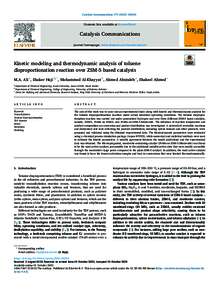وثيقة
Advanced Machine Learning Applications to Viscous Oil-Water Multi-Phase Flow
وكيل مرتبط
عنوان الدورية
Applied Sciences
دولة النشر
Kingdom of Bahrain
مكان النشر
sakhir
الناشر
University of Bahrain
تاريخ النشر
2022
اللغة
الأنجليزية
الموضوع
الملخص الإنجليزي
Abstract:
The importance of heavy oil in the world oil market has increased over the past twenty
years as light oil reserves have declined steadily. The high viscosity of this kind of unconventional oil
results in high energy consumption for its transportation, which significantly increases production
costs. A cost-effective solution for the long-distance transport of viscous crudes could be waterlubricated flow technology. A water ring separates the viscous oil-core from the pipe wall in such a
pipeline. The main challenge in using this kind of lubricated system is the need for a model that can
provide reliable predictions of friction losses. An artificial neural network (ANN) was used in this
study to model pressure losses based on 225 data sets from independent sources. The seven input
variables used in the current ANN model are pipe diameter, average velocity, oil density, oil viscosity,
water density, water viscosity, and water content. The ANN developed using the backpropagation
technique with seven processing neurons or nodes in the hidden layer demonstrated to be the optimal
architecture. A comparison of ANN with other artificial intelligence and parametric techniques
shows the promising precision of the current model. After the model was validated, a sensitivity
analysis determined the relative order of significance of the input parameters. Some of the input
parameters had linear effects, while other parameters had polynomial effects of varying degrees on
the friction losses.
المجموعة
المعرف
https://digitalrepository.uob.edu.bh/id/b86969dd-871b-40ee-9e52-d9b34980fcca
مواد أخرى لنفس الموضوع



